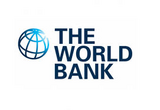
Technology in the Classroom and Learning in Secondary Schools
Blimpo, Moussa P. / Ousman Gajigo / Solomon Owusu / Ryoko Tomita / Yanbin XuExternal Publications (2020)
Policy Research Working Paper No. 9288, Washington: World Bank
This paper studies the impact of a computer-assisted learning program on learning outcomes among high school students in The Gambia. The program uses innovative technologies and teaching approach to facilitate the teaching of mathematics and science. Since the pilot schools were not randomly chosen, the study first used administrative and survey data, including a written test, to build a credible counterfactual of comparable groups of control students. It used these data to conduct a pre-analysis plan prior to students taking the high-stakes certification exam. The study later used the certification exam data on the same students to replicate the results. The findings show that the program led to a 0.59 standard deviation gains in mathematics scores and an increase of 15 percentage points (a threefold increase) in the share of students who obtained credit in mathematics and English, a criterion for college admission in The Gambia. The impact is concentrated among high-achieving students at the baseline, irrespective of their gender or socioeconomic background.
